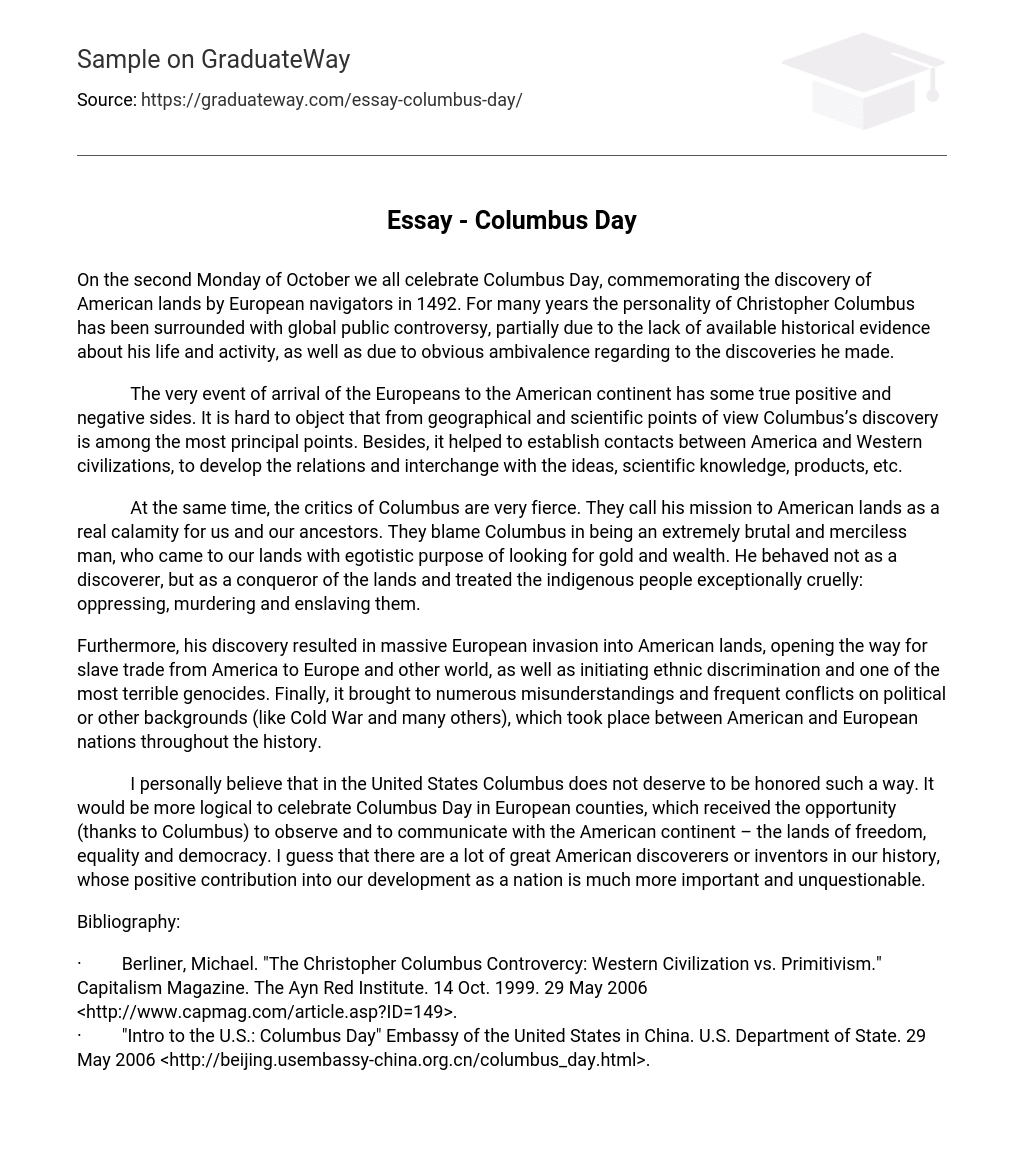On the second Monday of October, we celebrate Columbus Day, commemorating the discovery of American lands by European navigators in 1492. The personality of Christopher Columbus has been surrounded by global public controversy for many years. This is partially due to the lack of available historical evidence about his life and activity, as well as the obvious ambivalence regarding the discoveries he made.
The arrival of Europeans to the American continent had both positive and negative effects. From a geographical and scientific perspective, Columbus’s discovery was one of the most significant events. Additionally, it facilitated communication between America and Western civilizations, leading to the exchange of ideas, scientific knowledge, products, and more.
At the same time, critics of Columbus are fierce. They consider his mission to American lands a calamity for us and our ancestors. Columbus is blamed for being an extremely brutal and merciless man who came to our lands with the egotistic purpose of looking for gold and wealth. He behaved not as a discoverer, but as a conqueror of the lands, treating indigenous people exceptionally cruelly by oppressing, murdering, and enslaving them.
Furthermore, his discovery resulted in a massive European invasion of American lands. This opened the way for slave trade from America to Europe and other parts of the world, as well as initiating ethnic discrimination and one of the most terrible genocides. Finally, it led to numerous misunderstandings and frequent conflicts on political or other backgrounds (such as the Cold War and many others) between American and European nations throughout history.
I personally believe that in the United States, Columbus does not deserve to be honored in such a way. It would be more logical to celebrate Columbus Day in European countries which received the opportunity, thanks to Columbus, to observe and communicate with the American continent – the lands of freedom, equality and democracy. I believe that there are many great American discoverers or inventors in our history whose positive contribution to our development as a nation is much more important and unquestionable.
Bibliography:
Berliner, Michael. “The Christopher Columbus Controversy: Western Civilization vs. Primitivism.” Capitalism Magazine. The Ayn Rand Institute. 14 Oct. 1999. Retrieved 29 May 2006 from http://www.capmag.com/article.asp?ID=149.
“Intro to the U.S.: Columbus Day.” Embassy of the United States in China. U.S. Department of State. Retrieved 29 May 2006 from http://beijing.usembassy-china.org.cn/columbus_day.html.





